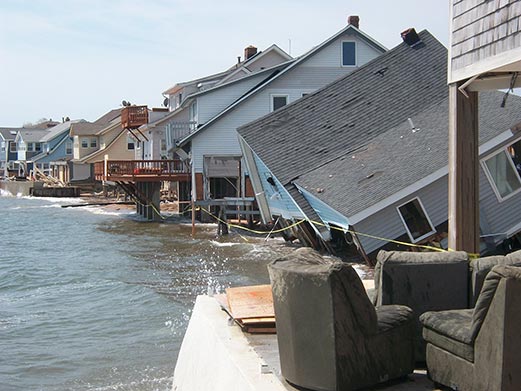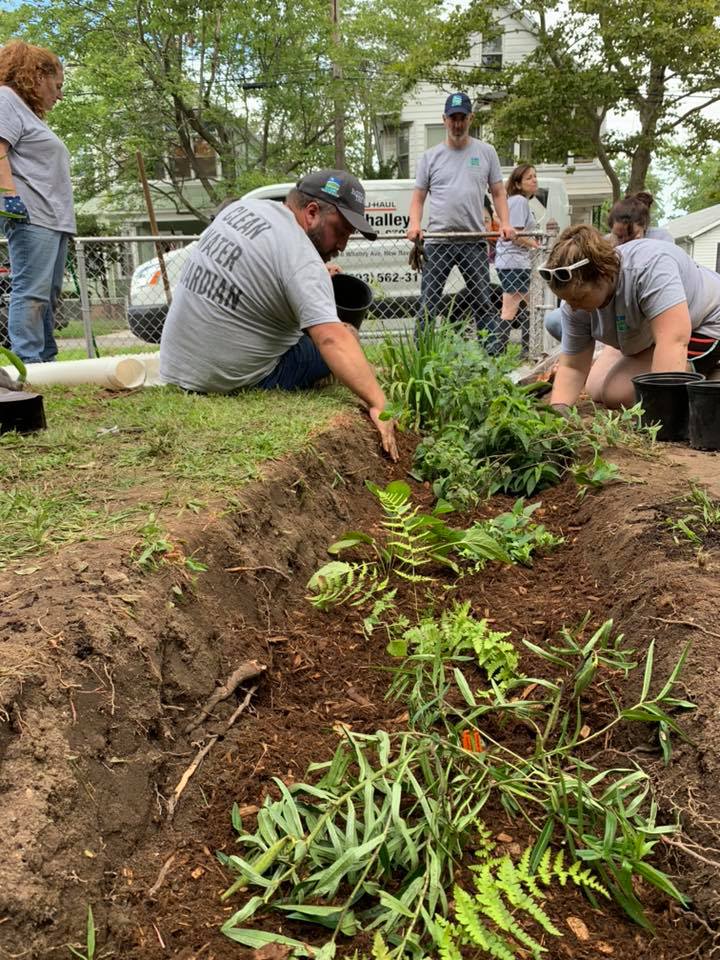Save the Sound is leading on bold climate action through policy leadership and community-based projects that help our neighborhoods and ecosystems adapt to escalating climate threats. With storms getting stronger and deluges becoming more frequent every year, we’re restoring coastal marshes, rivers, and floodplains to protect neighborhoods from flooding.
Storms and Sea Level Rise

Our coastal areas are particularly vulnerable to the effects of climate change. Sea level rise and heavy storms cause erosion and flooding and affect humans, habitats, marshes, infrastructure, and the economy.
By 2050, Connecticut’s coast can expect 20 inches of sea level rise and in New York City, 37 percent of buildings in Lower Manhattan will be at risk from storm surge. And natural infrastructure, like coastal wetlands, beaches, and river floodplains, that provide important defenses against storms for people and property, are at great risk.
Future resilience of our coastline and waterways depends on our ability to adapt, plan, and take action today to avoid and mitigate environmental, human, and economic losses.
Partners and Funding
Effective resilience and adaptive measures require dedicated partners and funding.
CIRCA: The Connecticut Institute for Resilience & Climate Adaptation (CIRCA) is a partnership of UConn and the Department of Energy and Environmental Protection (DEEP) that focuses on increasing the resilience and sustainability of communities along Connecticut’s coast and inland waterways. CIRCA brings together a variety of experts to provide natural science, engineering, education, and financial assistance to reduce the loss of life and property, natural system and ecological damage, and social disruption from high‐impact events.
Clean Water Fund: The Clean Water Fund is the mechanism through which DEEP provides financial assistance to municipalities for upgrades to wastewater projects that will mitigate sea level rise impacts.
Due to aging wastewater infrastructure, heavy rains can cause untreated wastewater to discharge through combined sewer overflow (CSO) locations, causing raw sewage to pollute our waterways through the storm drain system. Unfortunately, the mitigation of the remaining CSOs is not a quick or easy process. Sewer separation projects are expensive and are complex to coordinate, especially in more densely populated urban areas. Municipalities in Connecticut that still contain CSOs throughout their collection systems are actively working to reduce and eliminate sewer overflows thanks to the Clean Water Fund.
On-the-Ground Impact

At Save the Sound we aren’t afraid to get our hands dirty. Throughout the year, we work on community-based projects that help our neighborhoods and ecosystems adapt to escalating climate threats and restore coastal marshes, rivers, and floodplains to protect neighborhoods from flooding.
Check out our exciting Green Infrastructure and Living Shoreline projects!
Photo: Save the Sound staff plants a rain garden in Hamden. Rain gardens absorb water runoff from roofs and prevent excess water overloading the storm drain and wastewater system.
